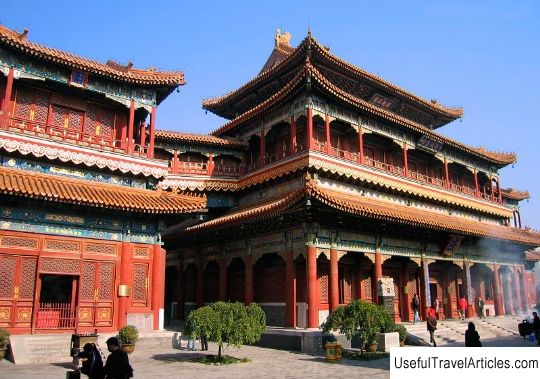Lamaist (Buddhist) Temple (Yonghegong) in China, Beijing Resort
Rating: 7,8/10 (120 votes)  This temple is the most famous Buddhist monastery in the city. It is located in the north of the former imperial city. Yonghegun – this is a lamaist monastery. This means that it is a monastery of Tibetan Buddhism. The history of Yonghegun began in 1649. Then the Kangxi emperor built a palace on this place for Yong-qingwang, his son. When Yong-qiwan occupied the throne, the palace was called Yonghegong. The name could be interpreted as `` Palace of Yun, who became emperor '', or as `` Palace of Harmony. '' After Yong-qingwang died, his body was located for some time in a special pavilion of the palace. In 1746, the palace was rebuilt into a temple, which became a Lamaist monastery. From the very beginning, Yonghegong differed from other Peking Buddhist temples, as it was a court monastery. First the Emperor Jiangjing, and then all the emperors who followed him, annually held a special ceremony of remembrance of their ancestors here. Now Yonghegong is a functioning monastery. True, from half a thousand monks who once lived here, now there are only a hundred. You can get to the temple by subway, getting off at Yunhegun station.     We also recommend reading Saigon Water Park, Vietnam, Ho Chi Minh Resort Topic: Lamaist (Buddhist) Temple (Yonghegong) in China, Beijing Resort. |




